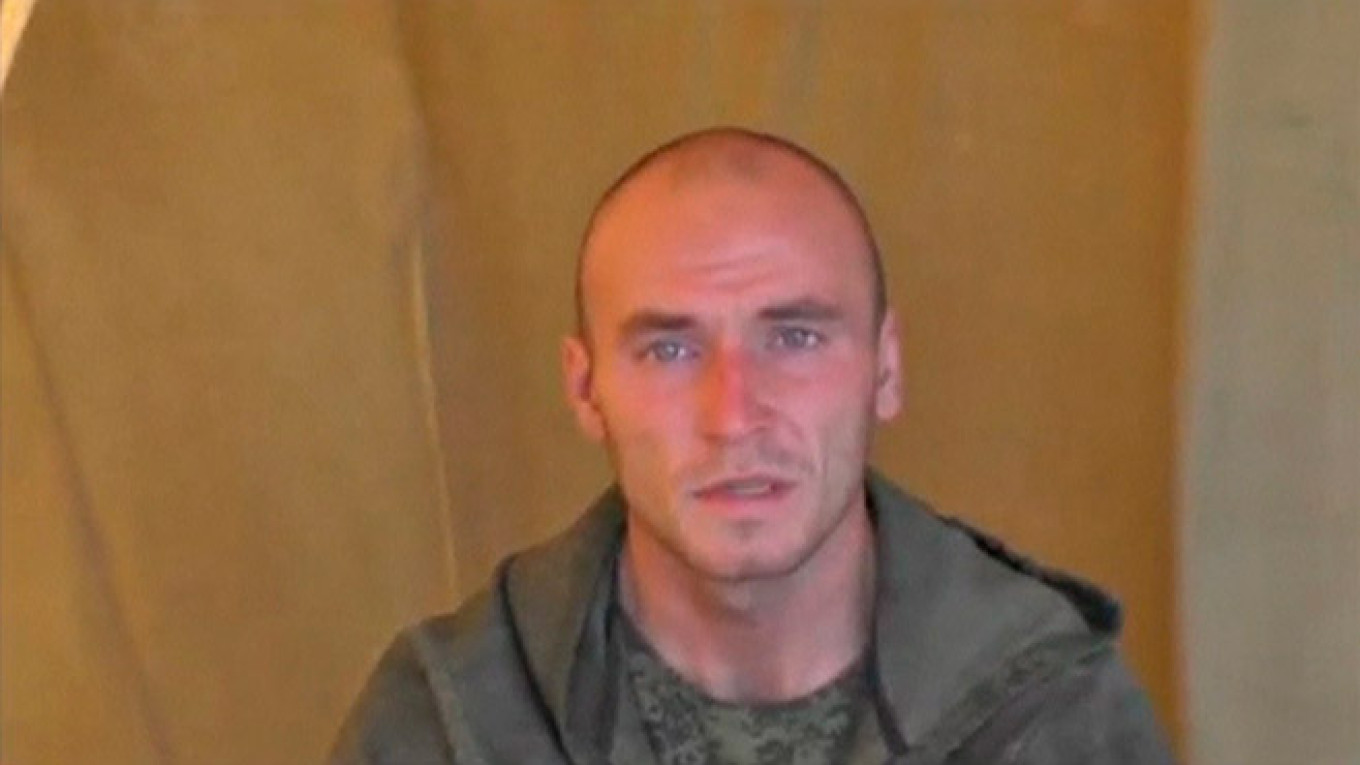The secrecy shrouding a group of Russian paratroopers allegedly deployed to Ukraine has caused an outcry among the liberal media and immeasurable worry to troops' relatives — but it appears that Russian authorities are legally entitled to remain tight-lipped.
Not even in the case of "cargo 200" — as dead servicemen shipped home are referred to in Russia, based on the standard weight of a coffin — is the military under legal obligation to disclose the location or circumstances of soldiers' deaths.
Deploying servicemen to a war zone without warning or explanation does not constitute a violation of their rights either, soldiers' rights activists and veterans told The Moscow Times.
"You take your oath, and then you just go where they send you," Oleg Shvedkov, a retired submariner who heads of the All-Russian Servicemen Labor Union, said Monday.
In fact, the president is even entitled to send Russian troops abroad without parliamentary sanction, at least under domestic legislation, said Sergei Krivenko of the Citizen & Army NGO, who also is a member of the Kremlin's rights council.
Mysterious Paratroopers
Reports emerged last week that Russian reinforcements had saved the day for the embattled pro-Russian insurgency in eastern Ukraine.
Official Kiev, NATO and the White House all spoke of what appeared to be a limited Russian deployment aiding the rebels.
Russian President Vladimir Putin denied it — as he did during the March annexation of Ukraine's Crimean Peninsula. Russian troops without insignia took control of the region at the time, but Putin only acknowledged their presence when the takeover was finished.
Soldiers' mothers, mad with worry, have swarmed their local military commissariats in recent days and petitioned Putin for explanations — so far to no avail.
Several Russian journalists claim to have been assaulted while investigating reports about paratroopers having been buried in Pskov. Their colleagues called the Defense Ministry to end the "shameful conspiracy of silence."
But perhaps it does not have to.
No One Must Know
Relatives of soldiers who die in the line of duty are usually informed of what happened, but this is purely goodwill, experts said.
"There is no legal provision for that," said Shedkov of the All-Russian Servicemen Labor Union.
Standard military contracts also contain nothing on informing relatives — or, indeed, any limitations on a recruit's deployment.
About 190,000 members of the 760,000-strong Russian army are currently serving upon their own volition. The rest are conscripts.
The voluntary service is increasingly popular thanks to relatively high salaries. A private's salary starts around 18,000 rubles ($500) a month, a sumptuous sum in the eyes of many young men from rural areas and poorer regions, where a five-digit monthly income is an exceedingly rare thing.
But conscripts can also be sent into combat, though not until they have had the luxury of four months of training, according to a presidential decree from last February.
The practice of sending conscripts into war zones — which led to thousands of deaths in Afghanistan between 1979 and 1989 and during the First Chechen War of 1994-1996 — was much criticized but never canceled.
General Staff chief Valery Gerasimov said in February that the practice had been suspended since 2000. But conscripts fought in the second Chechen conflict in 1999-2009 and the brief Russian-Georgian war of 2008.
Compatriots, Aggressive Wars
Responsibility for sending troops into combat rests squarely with their superiors, Shvedkov said.
The question is, in this case, under what legal conditions can Russian troops — even theoretically — be sent to fight an undeclared war on foreign soil.
At first glance, the list of options in 1996's Defense Law does not leave much wiggle room: Russian troops can fight abroad to protect other Russian troops in another country, to protect another state (upon that state's request), to protect Russian citizens or to battle pirates.
Any deployment, according to the same law, must also be authorized by the Federation Council, the upper chamber of Russia's parliament, whose staunchly pro-Kremlin lineup made a big show of issuing such an authorization in March.
The grant of permission kept the world — especially Ukraine — on their toes until the Federation Council officially recalled it in June.
But the permit's issuance appears to have been entirely for show because the Federation Council actually issued a "universal mandate" to the president in 2009, allowing him to deploy troops abroad without further approval.
The Kremlin's top inhabitant has changed since Putin replaced Dmitry Medvedev in 2012, but this should not have affected the "universal mandate," which has no statute of limitations.
The clause on "protecting Russian citizens" can also be evoked in eastern Ukraine, where many locals hold both Russian and Ukrainian passports.
Moreover, Russia has a vaguely formed law on "compatriots," last updated in 2010, that pledged Russian support to all individuals with cultural, historical and even spiritual ties to Russia.
While the law does not explicitly stipulate for the armed protection of "compatriots," it promises protection of their basic rights — which includes the right to life, said Krivenko of the Citizen & Army NGO.
This is not to say Russia's military involvement in Ukraine could not be contested, should it be proven: The UN Charter denounces any breach of peace, and Article 353 of Russia's Criminal Code bans "aggressive war."
But Article 353 has never been invoked in practice and does not appear likely to see any use anytime soon.
"There are some legal violations about the [alleged] Russian involvement," Krivenko said. "But basically, it looks like they're in the clear."


